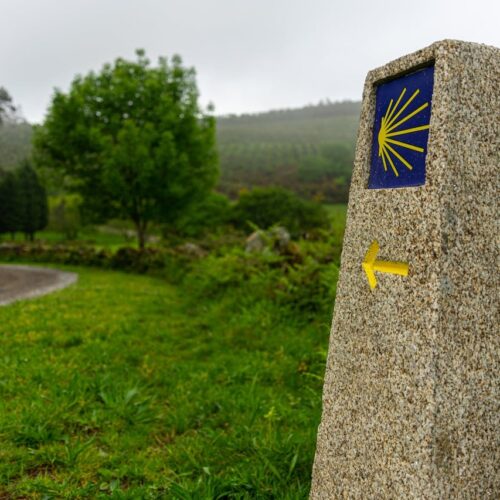Studying at university is a great adventure for many people, and part of that adventure might even include some travelling around the world.
Whether it be a short trip or a gap year abroad, we’ve come up with seven of our best tips for travelling students and advice to make sure you get the most out of exploring far and wide!
Research Where You Want To Go
Before you even set off on your travels, one of the things you should consider is where exactly you want to go.
It might sound obvious, but there are so many destinations and options for activities that it might feel like you’re spoilt for choice. Deciding on where to go shouldn’t be a rash decision.
A good way to get started is to think about your interests. If you love history then choose a destination rich in historical sites of interest. If you’re a huge foodie think about some places that have a diverse range of culinary delights.
Study the culture of your destination beforehand. Are there any cultural, social or religious norms that you’d have to follow while visiting that country? Think about dress codes and try to learn some of the local language – that can really make life a lot easier!
Learning some of the lingo also makes it a lot easier to make friends with the locals, which is possibly the most important of travelling abroad. Having connections with people from the place will help you to integrate and really learn about their mindset and customs.
When you first arrive, go for walks around the town or city to get accustomed to the streets and atmosphere. Maybe go on a free walking tour if they exist in your destination, and get the bus or walk to places so that you get to know where everything is.
Book Your Tickets In Advance
When the time comes to set off on your student travel adventure, you should already have had your accommodation and transport booked well in advance. By booking in advance, you’re saving money – the prices increase as the travel dates draw nearer.
Try to see if there are any student discounts or travel offers you can take advantage of.
Accommodation and food sometimes go hand-in-hand, so it’s also worth checking whether your hostel, hotel or host provides anything to eat – another great way to sample the flavours of your destination.
On the note of accommodation, don’t be afraid to step out of your comfort zone. What might be the preferred student accommodation in Belfast, London or Manchester might not be readily available abroad. You might be surprised by how choosing accommodation that you wouldn’t have considered before, can set you off on a whole new adventure and help you to meet lots of new friends.
Don’t Be Afraid To Travel Solo
Don’t wait around for your friends to be ready to accompany you on your travels – they most likely have their own plans or obligations.
You shouldn’t let the fear of travelling alone hold you back from seeing places that you’ve always wanted to visit.
In fact, travelling alone can be even more interesting than going with friends. You’ll find the locals are usually more open to chatting to you if you’re on your own.
You’ll also discover just how resilient and capable you are of adapting to new circumstances if you travel solo, which is a real self-esteem booster.
Pack Light
Don’t take too many clothes or personal objects with you.
By only taking the essentials, you’ll save yourself the bother of lugging heavy suitcases and backpacks around. Plus, you’ll probably save money on the plane journey.
Learn How To Handle Money Well
One very important life skill that you’ll need to master when travelling is how to handle your finances.
The last thing you want to happen is that you find yourself abroad strapped for cash.
Set up a separate bank account for your travel expenses, so that you don’t accidentally overspend. There are some great international banking apps with debit cards, which can be really handy and save you money on expensive bank charges.
Before you go abroad, try to estimate how much money you’ll need for living expenses. Of course, taking into consideration the exchange rate.
Take into account transportation, accommodation and food, sightseeing, and an emergency fund just in case!
Get All Your Documents In Order
If you’re travelling within Europe, it’s not likely you’ll need more than your UK passport or EU ID card. If you’re moving further afield, you may be asked for visas and other documentation. However, this depends on how long you plan to travel for.
You should also ensure you’ve had all your vaccinations if you’re going to a country that requires them, and make sure you’ve got any health insurance sorted.
Volunteer Or Get A Part-Time Job
If you’re travelling for more than just a short summer holiday or weekend break, then it’s a great idea to do something fun yet useful like volunteering or getting a part-time job.
They’re a fantastic way to meet the locals and other travellers, and will also add a string to your bow when it comes to writing your CV at the end of your uni studies.
There are many websites you can browse to find summer volunteering placements, such as Workaway, WWOOF, Go Overseas, or the International Voluntary Service.
You could even get a job in a hostel through the website Hostel Jobs. Or sign up to programmes such as Erasmus. Two of the most typical part-time jobs for people taking a gap year abroad are being an au pair (nanny). Or teaching English as a foreign language (TEFL).
There are many many countries where English teachers are in demand, so the world is your oyster!
To teach English, qualification requirements vary. You normally need to be a native English speaker and have a TEFL certificate, This can be easily obtained online through a basic six-week course. Some teaching abroad programmes even provide the certification as part of the experience of teaching in their schools.




